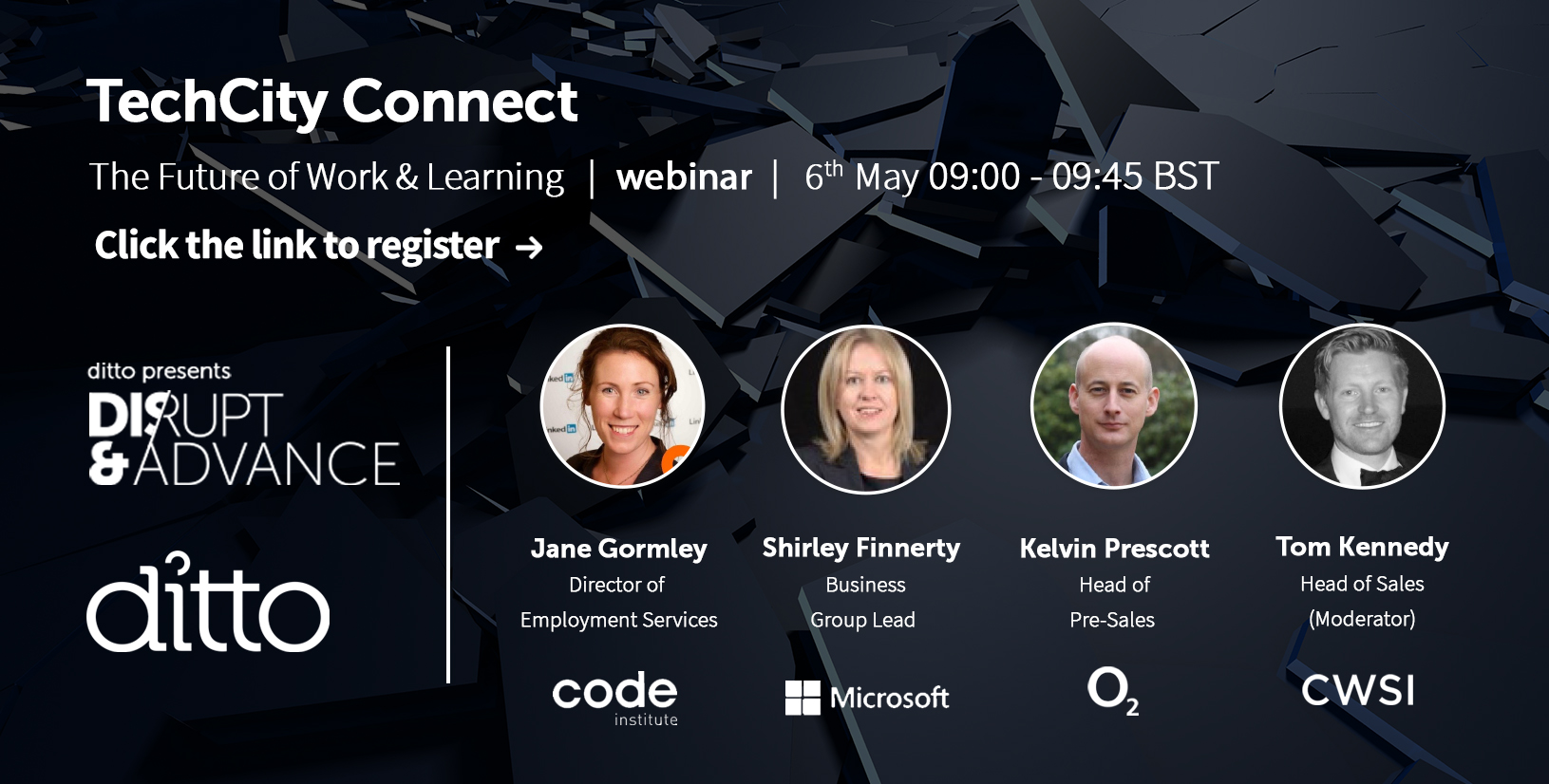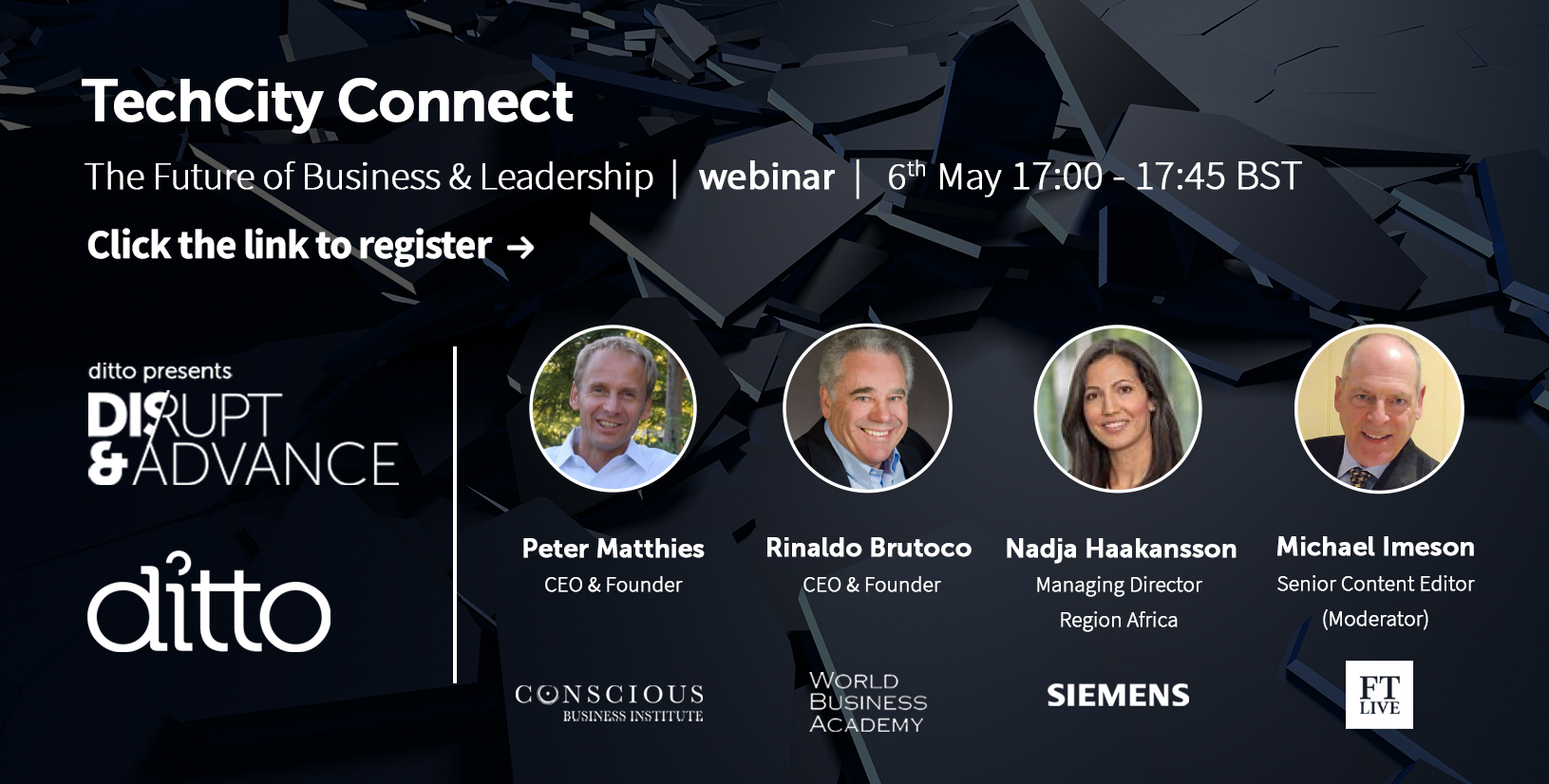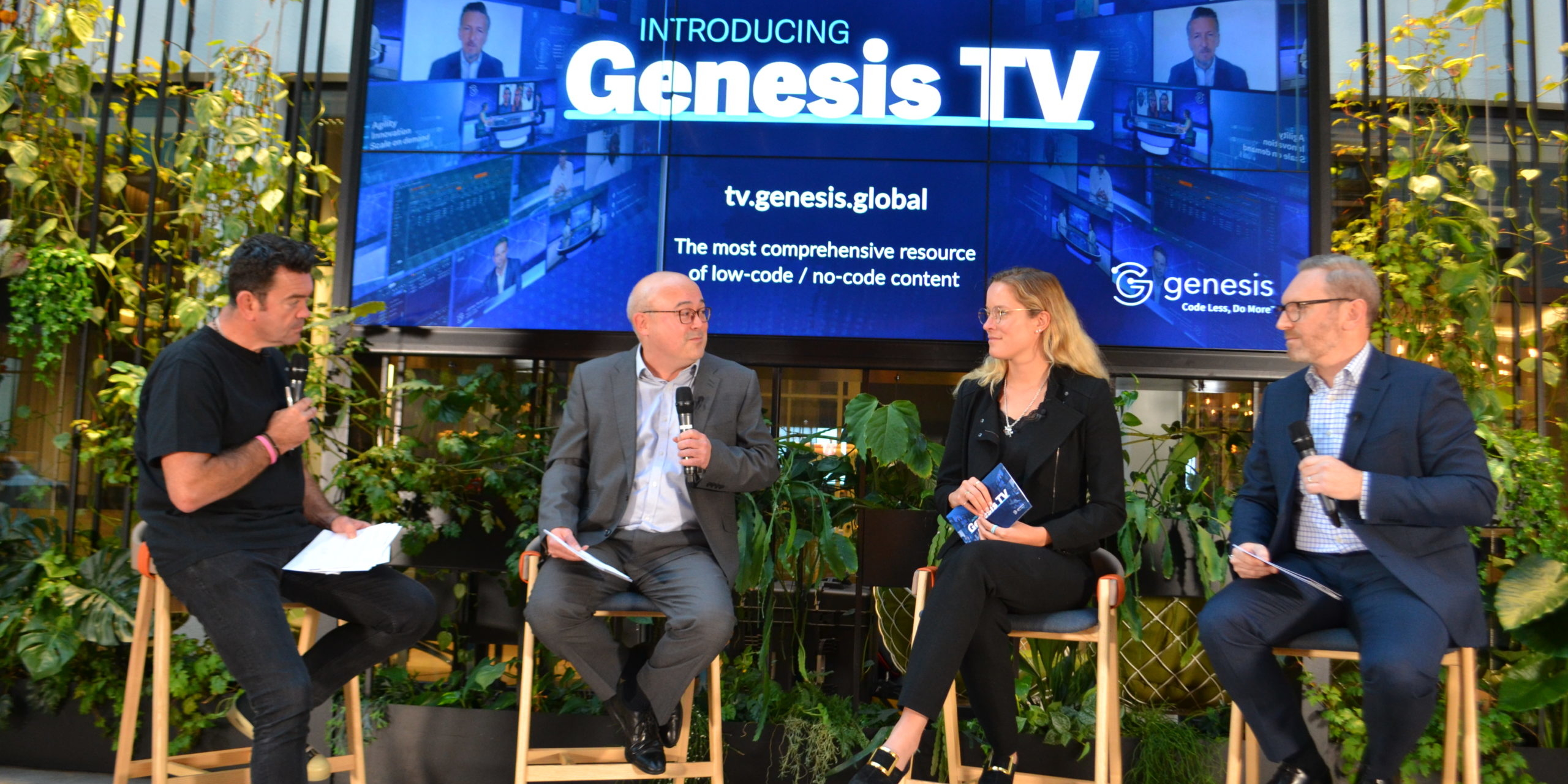We cannot predict the future be we can help to shape it – with positive change. TechCity Connect – a day of tech, art and culture online is helping to address the challenges business face today, so they are prepared for tomorrow. In this article we explore two webinars looking at ‘The Future of Working & Learning’ – remote working and on-line personal development, as well as ‘The Future of Business & Leadership’ – discussing the next generation of leaders, creating collaborative teams and purpose-driven cultures.
The Future of Working & Learning
With the world in lockdown, people are swapping their office cubicles for spare bedrooms and logging on to work from home. For many, it’s an extreme extension of a remote-working policy their employers had already implemented. For others, it’s a shock to find the centre of their work universe suddenly out of bounds.
Either way, the crisis has created some major challenges for firms. Even the more technologically mature organisations will have been taken by surprise by the sheer speed of the change. However, firms still have to turn their attention to the longer term. In the same way it has changed mindsets around handwashing and hygiene, the ongoing crisis will likely see huge long-term impact on the way that businesses operate in future.
Will it even be possible to go back to the way they worked? However long we need to stay at home, firms have some big questions to answer. For starters, how can they make the most of their remote working and learning processes? And how will this situation shape the future of business?
How the need for remote working is shaping the future face of business
The first major shift taking place is businesses realising they need to move from business continuity planning (BCP) to business as usual (BAU). With no clear idea of when people will be able to leave their homes safely, firms have had to change the way they view the world of work.
Managing remote teams is no longer seen as a short-term temporary obstacle to overcome; it’s a new baseline for how people operate. Those who saw remote working as a niche activity are likely playing catch-up as they work out how to scale-up their mobile processes in a way they can sustain for the foreseeable future.
Businesses are learning exactly what they can and can’t achieve effectively away from the office. There’s a good chance they’ll discover a wide variety of functions they previously saw as office-bound that really don’t need to take place on-premise. Conversely, they’ll find out which processes are much more productive on-premise.
Managing remote teams is no longer seen as a short-term temporary obstacle to overcome; it’s a new baseline for how people operate.
Click the banner below to join ‘The Future of Working & Learning’ webinar at 9.00 BST – 06.05.20 – featuring speakers:
- Tom Kennedy, Head Of Sales – CWSI (Moderator)
- Jane Gormley, Director of Employment Services – Code Institute
- Shirley Finnerty, Business Group Lead – Microsoft
- Kelvin Prescott, Head of Pre-Sales – O2
The Future of Business & Leadership
Even before the current crisis began, firms were exploring how digital tech could change their businesses – embracing new tools and ways of working. They looked at ways to bring their teams together remotely, speed up business processes in the cloud, and improve the efficiency of operations using automated systems.
All these digital innovations can change the way firms see their business – and the way users approach their work. They can all offer effective ways to improve the deliver of products and services, enhance the customer experience, and tackle margin pressure.
The importance of purpose in workplace culture
Research from Harvard Business School indicates that nine out of ten leaders believe that improving their company culture would increase their overall business value and performance. Conversely, 85% see an unhealthy workplace culture leading to unethical behaviour. This will become an especially dangerous pitfall for companies to avoid as they come to terms with their responsibilities around Big Data and automated processes.
A positive culture can mean different things to different people, but one element that’s common to all workplaces is a sense of purpose. And this plays a key role in creating an effective culture – whether that purpose can be defined as an emphasis on individual behaviour internally or the wider impact a firm has on society. Perhaps, most importantly, 84% of executives say that a strong sense of collective purpose can affect an organisation’s ability to transform. This is why businesses can’t focus on technology and tools alone.
A purpose-driven culture is an integral part of the Digital Transformation journey – and something that needs to be planned for within that process.
Click the banner below to join ‘The Future of Business & Leadership’ webinar at 17.00 BST – 06.05.20 – featuring speakers:
- Michael Imeson, Senior Content Editor – FT Live (Moderator)
- Peter Matthies, CEO & Founder – Conscious Business Institute
- Rinaldo S. Brutoco, CEO & Founder – World Business Academy
- Nadja Haakansson, Managing Director Region Africa – Siemens
Get in touch
If you want to know more about The Future of Working & Learning, get in touch with Jonathan Singer.
If you want to know more about The Future Business & Leadership, get in touch with Mike Richardson.
Take a look at the TechCity Connect Agenda here.




